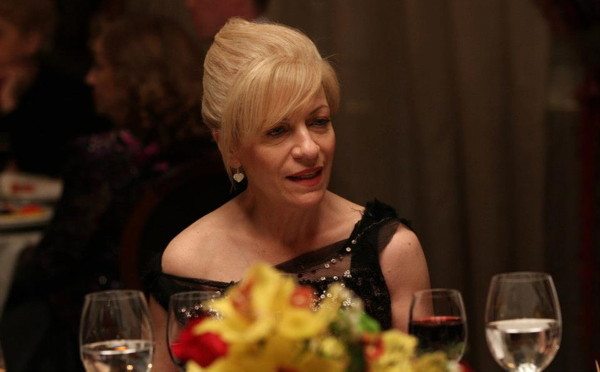
 One would think that by showcasing such an emphasis on the humanist aspects of life and a view of aesthetics that’s almost socialist in its depiction of subjects as parts of a larger scheme, New Wave Romanian Cinema would shy away from giving us “movie stars”, which is why it’s a real surprise to see how Luminița Gheorghiu completely shatters this notion with her majestic performance in “Child’s Pose”. The actress plays upper middle class matriarch Cornelia Keneres, a chain smoking woman who we first meet as she is deep in conversation with her sister-in-law Olga (Nataşa Raab). The camera moves back and forth between them, capturing the clink-clank of their jewelry, the ice cubes in their drinks and the subtle sounds they make when puffing on their cigarettes.
One would think that by showcasing such an emphasis on the humanist aspects of life and a view of aesthetics that’s almost socialist in its depiction of subjects as parts of a larger scheme, New Wave Romanian Cinema would shy away from giving us “movie stars”, which is why it’s a real surprise to see how Luminița Gheorghiu completely shatters this notion with her majestic performance in “Child’s Pose”. The actress plays upper middle class matriarch Cornelia Keneres, a chain smoking woman who we first meet as she is deep in conversation with her sister-in-law Olga (Nataşa Raab). The camera moves back and forth between them, capturing the clink-clank of their jewelry, the ice cubes in their drinks and the subtle sounds they make when puffing on their cigarettes.
Cornelia expresses concern for her son Barbu (Bogdan Dumitrache) and how he seems to have no more respect for her after starting a relationship with Carmen (Ilinca Goia), a divorcée who is planning to have her daughter move in with them. It seems as if Cornelia would do anything to have her son all to herself and when he runs over and kills a child, she seizes the opportunity by displaying her powers of manipulation and showing off her political influences. Like other films of the New Wave, many scenes in “Child’s Pose” take place inside offices and police stations, where we see Romanian bureaucracy at its most brutally inefficient.
“Child’s Pose” shows how Cornelia is able to traverse worlds denied to the parents of the deceased child because of their lower social class. She sits across from her son as he dictates his statement, and on several occasions she even asks him to rewrite some facts, as the parents of the child sob outside. What director Călin Peter Netzer does, that remains so powerful is that he presents us with parallel stories of parents trying to protect their children, while asking us if these stories have the same humane worth. Is Cornelia a bad person for trying to keep Barbu out of jail? Does Barbu have the right to treat his mother so bad when she’s obviously trying to look after him?
The entire film tries to balance itself between the very fine line that divides love and cruelty, with Gheorghiu encompassing these qualities in a complex character that will undoubtedly translate as monstrous to some and admirable in her determination to others. While the camera’s purpose is to capture the microcosms of Romanian society displayed in each frame, it never stands a chance when it runs into Gheorghiu. She takes hold of the screen with eyes like a wild animal and a perversely seductive tone that both shields and accuses her. When her son shouts at his father (Florin Zamfirescu) telling him that he is putty in his mother’s hands, Cornelia seems offended, hurt even, only to seconds later tell her husband that “yes, you are putty in my hands”. The fact that Cornelia is putting on an endless performance eventually makes us wonder if she herself knows exactly what her endgame is or if she’s using these distractions as ways to evade discovering who she actually is.